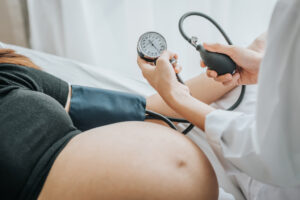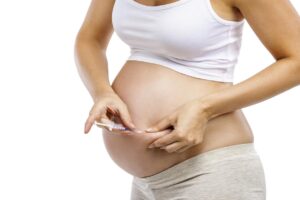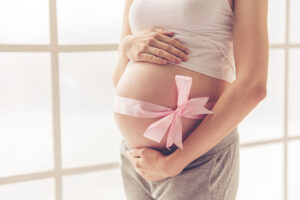What is my risk of miscarriage?
For most women the risk of miscarriage is 20% in each pregnancy. The risk does not increase if you have had a miscarriage in the past. Reassuringly, if you have a normal ultrasound at 9 weeks the risk of miscarriage reduces to 5%. This is why an early pregnancy reassurance scan is not done earlier than 9 weeks. If you have anormal scan at 12 weeks the risk of miscarriage drops to <1%. For women who are 40 years of age or older the risk of miscarriage is higher, close to 30%.
Why do miscarriages happen?
Usually a miscarriage is caused by a pregnancy not forming correctly when the egg and sperm combine. It is not your fault. It cannot be prevented. It is not caused by stress or lifestyle factors.
Other rarer causes are clotting abnormalities, endocrine conditions, PCOS or abnormalities of the womb such as fibroids.
What are the signs of miscarriage?
- Bleeding, especially if it is heavy
- Pain, usually crampy in nature and usually associated with bleeding
- Loss of pregnancy symptoms, but this is a less reliable sign.
How can I reduce my risk of miscarriage?
Take folic acid
If you have bleeding vaginal progesterone has been shown to reduce the risk of miscarriage
Avoid more than 200mg of caffeine/day
Don’t smoke or drink alcohol
Maintain a healthy lifestyle
When will I get my first period after a miscarriage?
3-6 weeks after a miscarriage. Your first period after a miscarriage may be slightly heavier than normal.
How long do I have to wait after a miscarriage before I can conceive again?
Ideally you should wait until your next period then you can try again. Women often get pregnant very quickly after a miscarriage.






